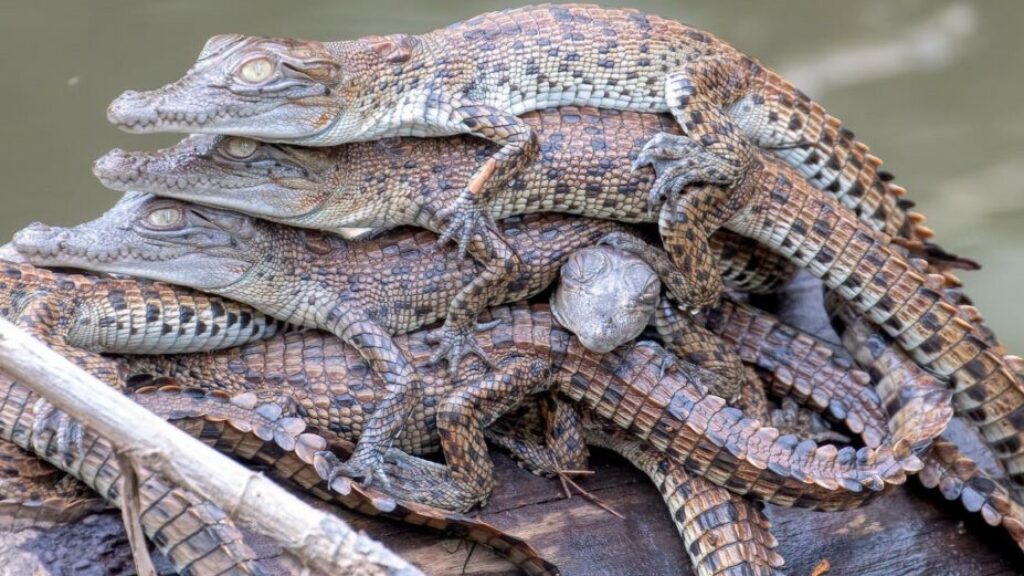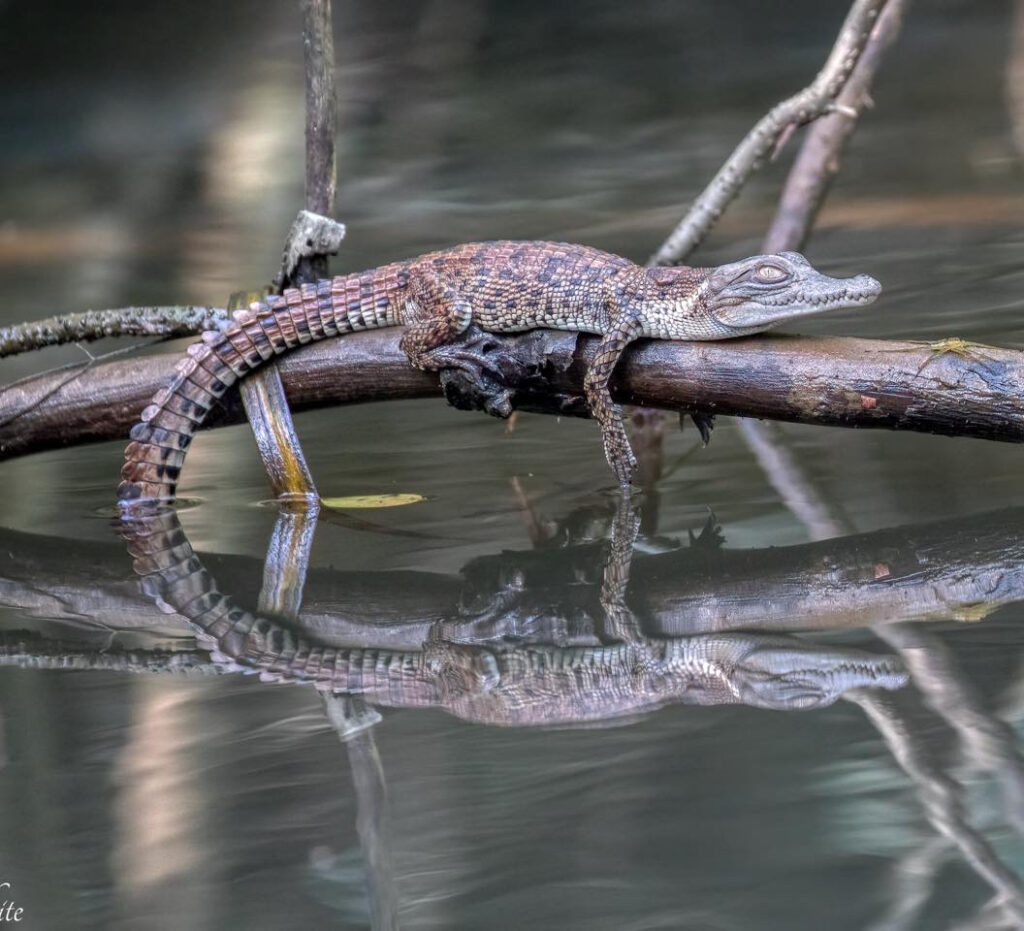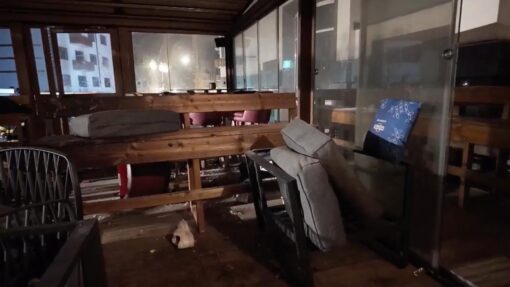Croco-pile! Watch heartwarming video of mother croc ‘Lizzie’ caring for her babies
Suellen Hinde - Queensland Editor |

It’s the time of year when baby crocodiles come into the world and emerge from the nest, with this clutch of new residents on the Daintree River arriving on February 22 – Steve Irwin’s birthday.
Daintree croc “Lizzie” has had 37 hatchlings this season and video obtained by The Queenslander shows she is working overtime to make sure they have the best chance to survive in a world full of predators and environmental dangers.
Lizzie lives in the domain of the dominant male crocodile on the river, a 4.6 metre beast named Scarface by the local tourism operator.
But it is very likely not all of her hatchlings can call Scarface daddy.
“Female crocodiles can store sperm for a period of time, usually a season,” Queensland Department of Environment and Science (DES) crocodile biologist Dr Matt Brien told The Queenslander.
“Research has found as many as six male parental DNA in a clutch. Half of all wild crocs have multiple partners.
“There is a dominant hierachy, usually a boss croc but others will move around to find food and mates. Other males will take their opportunity when they can.”
Female crocodiles are known as attentive parents, carrying their newly hatched offspring in their mouths from sandy nests on land to the water.
Video shows Lizzie keeping one of her babies on her head and above the waterline during heavy rain in the Daintree.
The baby crocodiles stick close together but Dr Brien said do not be fooled by what looks like sibling love as it is very much a case of sibling rivalry.
“Hatchlings are aggressive, and this starts at a young age, but they learn to reel that in to survive but they start off quite physical,” Dr Brien said.
Crocodile lover and operator of Daintree Solar Whisper, David White, has lived in Far North Queensland for more than 25 years. His knowledge of the animal and work on the Daintree River enables him to be in the right place to take stunning wildlife photographs.
He has been observing the mother of this clutch of babies for several years.
“This is Lizzie’s most successful year yet, hatching 37 babies,” Mr White said.
“She had a year off from breeding last year, and she built her nest differently, so she is learning and adapting to be more successful.
“She is also a very attentive mother spending a lot of time protecting her babies because they are at great risk from predators – mostly other crocodiles, barramundi and birds.”
Baby crocodiles will let their mother know when they are ready to hatch by squeaking from inside the eggs. She will help them out of the sandy nest and carry them to the river in her mouth.
The tiny crocodilians are also susceptible to flooding which was the case in 2019 when no babies survived a flood on the Daintree River.
Each baby crocodile has a one in a hundred chance of survival. And they take up to 15 years to reach sexual maturity.

Dr Brien said biologically the animals are “fascinating creatures with a perfect design” and the ability to use land and water.
“People are concerned they might be affected by climate change, but research has shown the sex of crocodiles is not altered by warming. You will get all males at exactly 32 degrees but either side of that temperature you will get a mix of females and males,” the northern wildlife specialist said.
“They have an amazing ability to tolerate infection proven by the number of injuries some of them carry losing limbs and surviving.
“Their immune system is 20 times greater than ours and as humans we can learn a lot from them. Scientists in the United States are investigating the properties of crocodile blood for use in medicine.”
And while at this age they are cute “we need to remember they are a very serious predator.”



